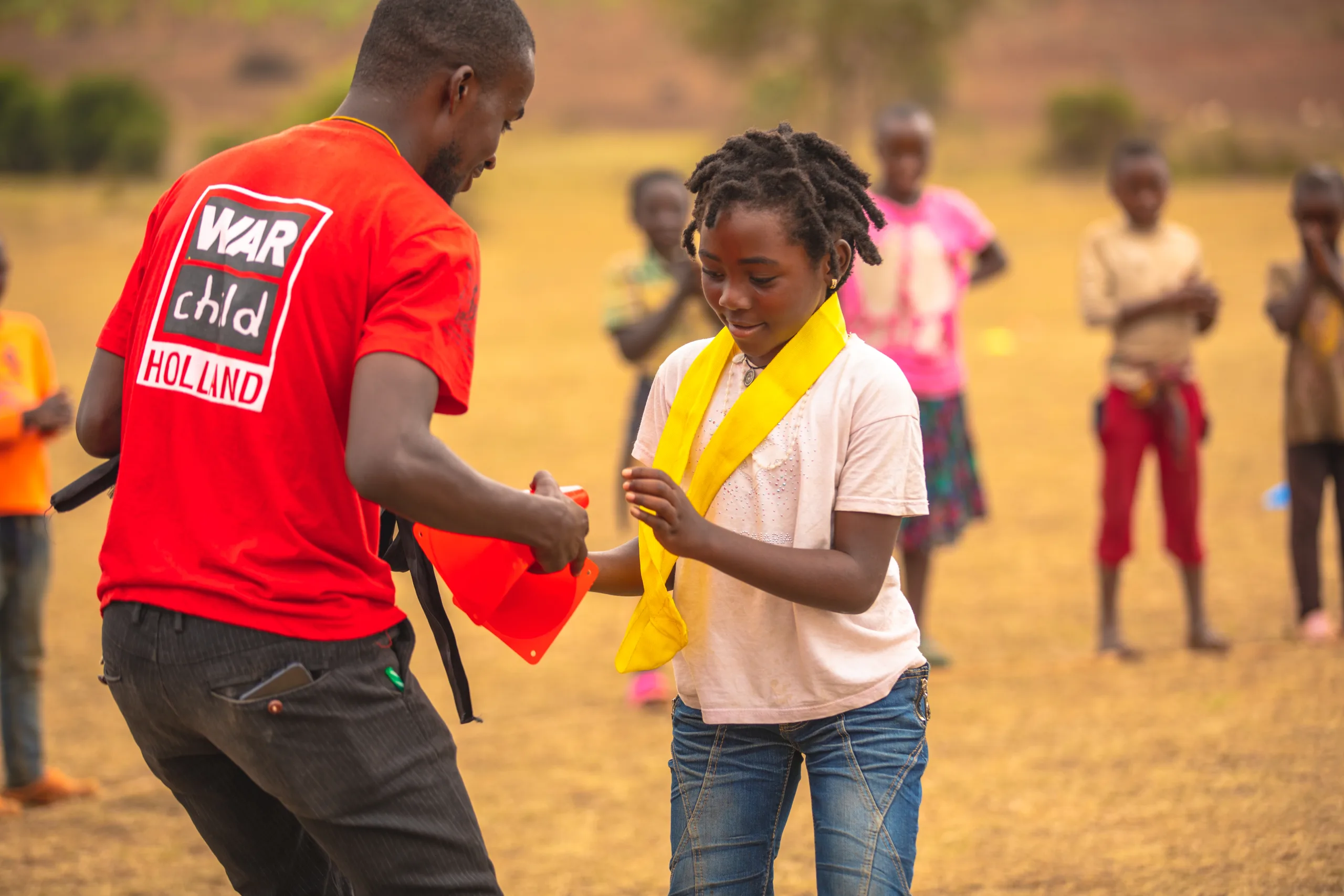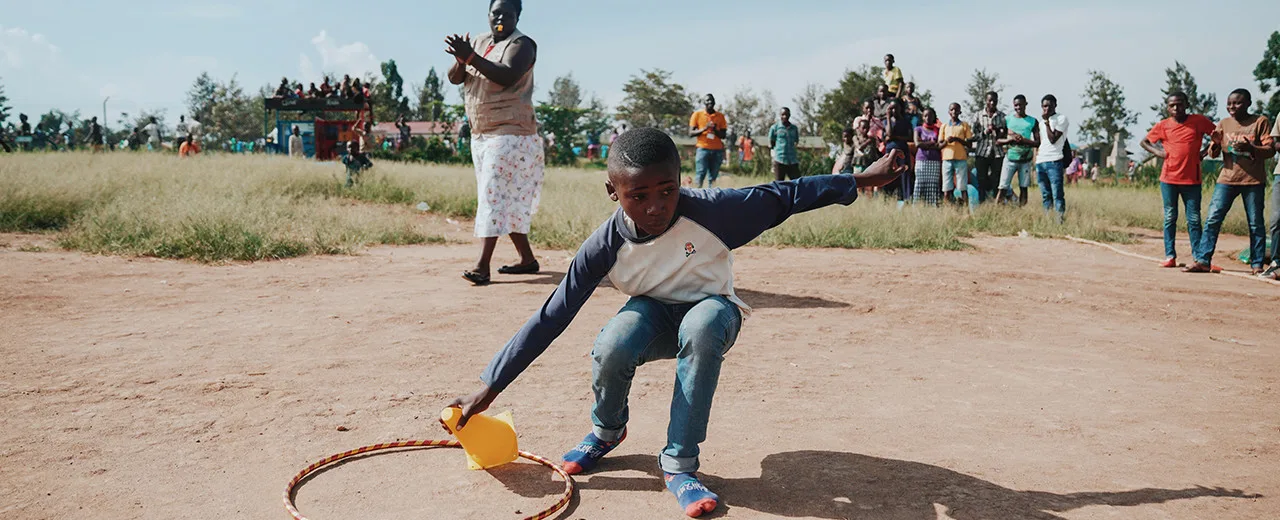 Strengthening children mentally through play and movement
Strengthening children mentally through play and movement
Stress & trauma management for children in the Democratic Republic of Congo
Mado is eight years old and comes from the Democratic Republic of Congo. When the rebels came, Mado had to flee with her mother. "When we arrived here, Mado was exhausted, sad and anxious", her mother recalls. A short time later, Mado began to take part in a programme to empower children. There, she can take part in regular sessions with other children, which help them to become aware of their feelings and strengthen their resilience. Mado experiences a sense of security and community and can simply be a child again. During her favourite games, she shakes off the traumatic experiences for a moment. "Then I forget the war for a while and am happy", says Mado. Her nightmares are also slowly fading. "Sometimes I dream that I work in a hospital, like my aunt. She is a doctor. I don't know what I want to be when I grow up, but I know I want to be like her."
Necessity
Psychosocial support for children affected by conflict
Activity
Structured, non-verbal, movement, play and theme-based activities are organised for conflict-affected children
Countable effort
Number of children given the opportunity to participate in the TeamUp programme
Result
The sense of security, social connectedness and a positive attitude and self-regulation grows in the children, they learn various stress management practices. Stress management practices
Systemic effect
Improving the psychosocial well-being and resilience of affected children
Background
Due to conflicts between armed groups and the government as well as natural disasters, the population of the Fizi region of DR Congo has repeatedly had to flee to other places within the country and to neighbouring countries. Life is difficult for these refugees as they have not only lost their homes. Many of them do not have enough money for regular meals or new clothes. Many children are also affected by this (UN OCHA 2023; UN OCHA 2022). The stress, the escape, the sadness about the abandoned home and the uncertain future have a negative impact on their well-being and behaviour. For example, many of the children become angry and aggressive or stop speaking. The “TeamUp” method was developed to provide lasting support for these children. It supports the children in strengthening their psycho-social health and resilience and improving their well-being. During the weekly “TeamUp” sessions, the children participate in structured play and movement activities led by trained facilitators. Each activity has a specific goal related to a specific topic, such as anger management, stress management and peer interaction. The sessions, which are regularly reviewed and documented, function without a common language and are inclusive. All children can participate – even if they do not speak the same language. In view of the behavioural problems that the children already show and for which the parents, if present, cannot provide any help; this measure is of vital importance. The concept is coordinated with the UN Strategy 2023-2024, which also aims at the fulfilled needs of life, the safety of children and their physical and mental well-being. Child protection is to be significantly improved through equal and safe access to quality social and health services for all children and adolescents living in conflict areas; or who have had to flee (United Nations DRC, 2023).
The good deed
With the help of today's good deed, facilitators (volunteers and teachers) are trained in the "TeamUp" method and how to work safely with the children. The activities are conducted in sessions with the children, aged 6-18 years, in safe places within the communities. The trained full-time project staff steer and supervise the implementation of the programme. Appropriate play materials such as hoops or ropes are provided for the children and the "TeamUp" facilitators. During the activities, the facilitators also have the task of identifying children who have particularly severe psycho-social problems and referring them to trained psychologists, as needed. During the joint activities, the children learn to deal with their feelings. They are helped to reduce stress and tension in their bodies, to feel safe and to impart this feeling onto others.

About the Democratic Republic of Congo
Kinshasa
Capital
99,010,212
Number of inhabitants
586.5
Gross domestic product per capita per year
0,479
Human Development Index
The soul and soundtrack of the Congolese: Congolese rumba has been inspiring music and dance across the continent since the 1960s.
About the organization and further information
Association
War Child Deutschland gGmbH
Website

Further information and source
- United Nations, OCHA, Février 2023, Plan de réponse humanitaire RD Congo, cycle de programme humanitaire 2023 – 2024
- United Nations OCHA ; Rapport de mission inter organisations effectuée du 25 octobre au 1er novembre 2022 sur l’axe Fizi centre – Lusuku
- Consortium DRCJR Fizi ; Rapport De L’évaluation Conjointe De Mise A Jour Des Besoins Dans Les Zones De Sante De Fizi Et Nundu En Territoire De Fizi Du 10 Au 14 Février 2023
- United Nations DRC, Les objectifs de développement durable




